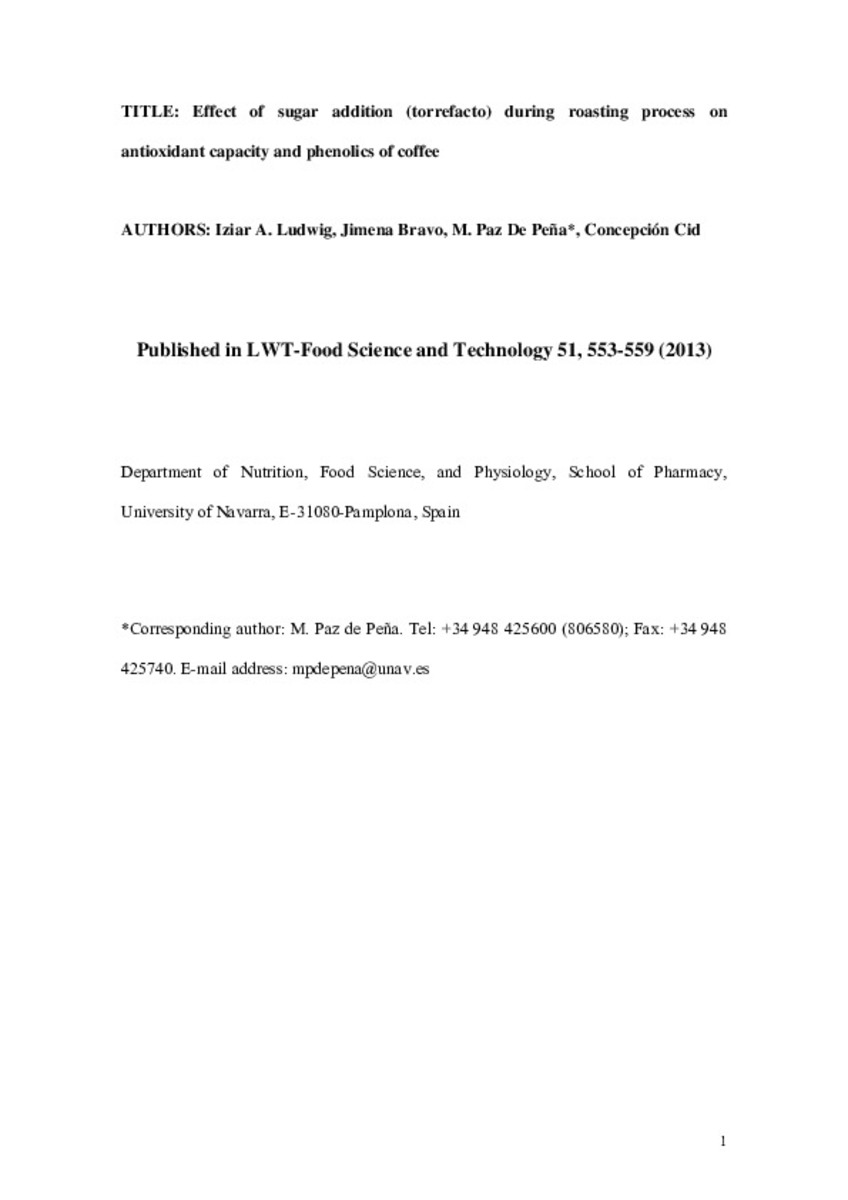Effect of sugar addition (torrefacto) during roasting process on antioxidant capacity and phenolics of coffee
Palabras clave :
Coffee
Roasting
Antioxidant
Coffee; Roasting; Antioxidant; Phenolic compounds
Maillard reaction products
Fecha de publicación :
2013
Cita:
Ludwig IA, Bravo J, Paz De Pena M, Cid C. Effect of sugar addition (torrefacto) during roasting process on antioxidant capacity and phenolics of coffee. LWT-Food Sci Technol 2013 MAY;51(2):553-559
Aparece en las colecciones:
Estadísticas e impacto
0 citas en

Los ítems de Dadun están protegidos por copyright, con todos los derechos reservados, a menos que se indique lo contrario.







